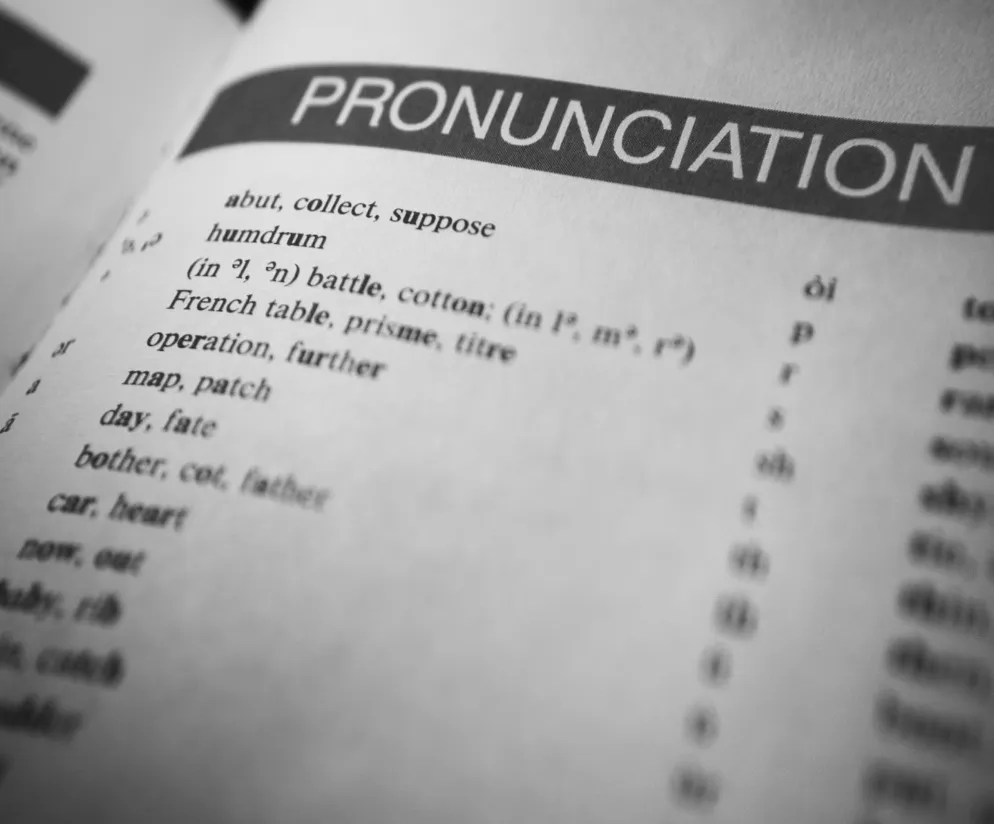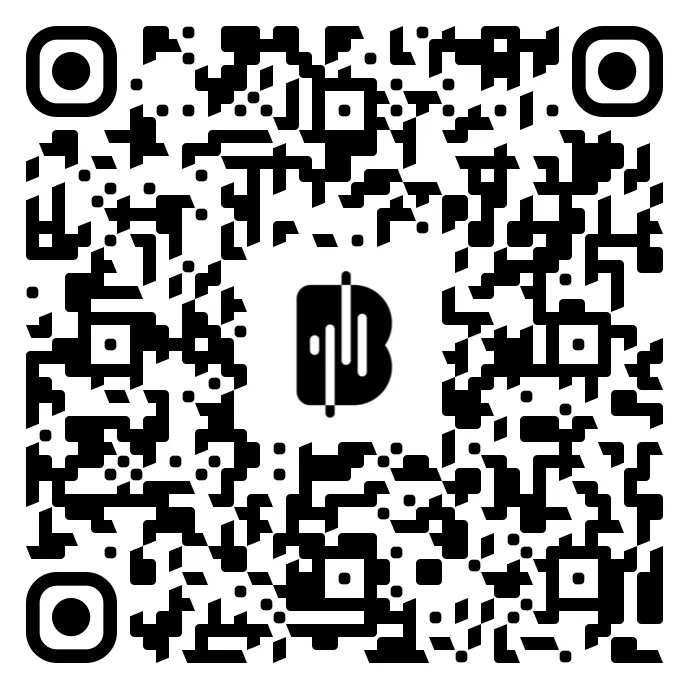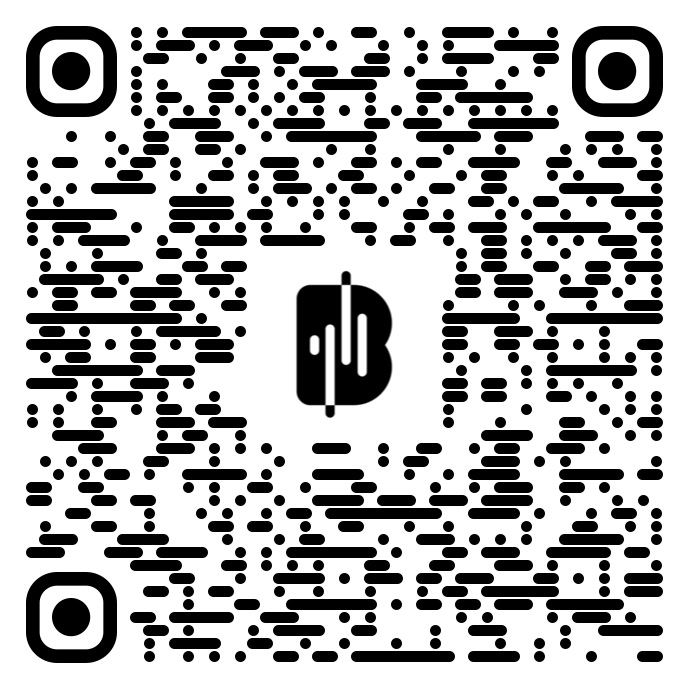The English language comprises numerous words that can be challenging to pronounce accurately, even for some native speakers. More often than not, pronunciation challenges are rooted in irregular spellings, distinct phonetics found in certain words, and variations in regional dialects.
Words form phrases, phrases construct lengthy statements, and these statements collectively determine your overall fluency in speech. Especially if you are a foreigner, this structure is why you should never overlook seemingly difficult words.
In this article, we highlight 51 of the hardest English words to pronounce and help you tackle them syllable by syllable.
1. Zucchini /zuːˈkiːni/ This word describes a type of summer squash. The spelling "zucchini" may confuse English language learners due to the "cchi" combination, which doesn't follow typical English pronunciation rules. It's therefore normal to mispronounce the combination as "she," as in zu-she-nee.
However, the trick is pronouncing this combination as a single "ki" sound similar to the sound in the word "key."
2. Rural /ˈrʊrəl/ The multiple "R" sounds in this word can sometimes pose a challenge in pronunciation, as this sound has many variants in different languages. The most common of these variants is the rolling "R" with a slightly exaggerated tone.
In American English pronunciation, the "R" sound is pronounced with the tongue raised and slightly curled back in the mouth, while the lips are slightly rounded. Check out the mechanics of this sound below, as demonstrated by BoldVoice coach Ron Carlos.
VIDEO
3. Quinoa /ˈkiːnwɑː/ "Quinoa" is a tricky word that simply refers to a type of protein-packed grain. This complicated spelling, more often than not, leads foreigners to mispronounce the word as "kwin-oh-wah."
In fact, the initial syllable is correctly pronounced as "keen" and it is immediately followed by "wah," not "oh-wah."
4. Accessory /əkˈsesəri/ "Accessory" refers to an item that makes something better. Common mispronunciations like "uh-ZESS-uh-ree" occur due to confusion with the double "cc" letters. Simply pronounce the first "c" as /s/ and the second as /s/.
Take your free accent assessment Get to know your pronunciation level and get 7 days of lessons for free on the BoldVoice app.
Start Free Trial
5. Onomatopoeia /ɑːnəˈmɑːtəpiə/ The word "onomatopoeia" is a mouthful that might have you catching your breath after pronouncing it! This word refers to words that imitate sounds, like "meow".
The best way to pronounce it is by practicing every syllable and emphasizing the stressed syllable, "poei" (pronounced "pee"), before the final "uh" sound.
6. Liaison /liˈeɪ.zɑːn/ Originating from French, this word won't make the list of the 25 most difficult English words for French speakers to pronounce . It refers to a connection or intermediary, comprising three syllables.
In this word, the "ai" makes the /eɪ/ sound like in "day," and the "s" is pronounced as /z/. It is, however, common to find mispronunciation variants like “lee-uh-zon" or "lay-zee-un."
7. Connoisseur /kɑː.nəˈsɝː/ Another French word, connoisseur is a person who has expert knowledge and keen discrimination in a particular field. Due to its length, variations like "con-noo-see-er" or "con-uh-sor" are common.
Again, by breaking down this word and learning each syllable at a time, it gets easier to pronounce accurately.
8. Supposedly /səˈpoʊ.zɪd.li/ The word "supposedly" involves distinct consonant sounds like /p/, /s/, and /d/. Foreign dialects like Vietnamese may struggle with the voiceless bilabial plosive /p/, leading to mispronunciations like "subosedly." To pronounce the /p/ in this word, close your lips firmly, build air pressure, and release with a burst.
9. Quay /ˈkiː/ Quay is one of those words whose pronunciation differs from its spelling, therefore often mispronounced as "kway" or "kwah."
A quay is a structure extending from the shore into the water, providing a docking place for boats. The word should be said as a single syllable with a long "ee" sound, similar to the word "key."
10. Isthmus /ˈɪsməs/ Non-native speakers may find it hard to pronounce "isthmus" due to the "th" letters in the word. Speakers should note that these letters are silent in this instance, and the word is instead pronounced as /ˈɪsməs/.
An uncommonly used word in English, "isthmus" describes a narrow piece of land with water on each side that joins two larger areas of land.
11. Buoy /ˈbuːi/ A buoy is a floating object used as a marker in bodies of water. Because of its unusual spelling, this short word makes its way to our list of the hardest words to pronounce in English. Pronouncing "buoy" is more like saying "boo" followed by a long "ee" sound, and not "oi" as in the word boy.
12. Mischievous /ˈmɪs.tʃə.vəs/ Many non-native speakers mispronounce this word by adding an extra syllable and saying "mis-CHEE-vee-uhs." The term means to be playfully annoying or causing trouble and you do not need to add an extra "vee" syllable when pronouncing it.
13. Wednesday /ˈwenzdeɪ/ The “d” in the middle of this word, representing the third day of the week, is silent. However, English learners tend to emphasize each alphabet, resulting in pronunciations like "Wed-nes-day."
The ideal pronunciation entails skipping the "d" and pronouncing the "s" as a /z/ sound. Say WENZ-day.
14. Squirrel /ˈskwɜːrəl/ Many non-native speakers might add an extra "uh" sound, when the word should be two-syllables with a quick transition between the "skwir" and "uhl" sounds.
A squirrel is a small rodent with a long, furry tail known for its quick movements.
15. Conscience /ˈkɒnʃəns/ The inner feeling or voice that sometimes guides your behavior is called your conscience. The most common mispronunciation of this word is "con-see-ence."
In American English, the "sci" combination in this word is a soft "sh" sound, not a hard "s." In this way, it differs from the word "science," which can be confusing.
16. Nauseous /ˈnɔʃəs/ Nauseous is challenging to pronounce due to the uncommon "seous" spelling. This "shuhs" sound makes the word tricky for many non-native speakers to pronounce.
The stress in this word falls on the first syllable, "NAW," which rhymes with "saw."
17. Lackadaisical /ˌlækəˈdeɪzɪkl̩/ This adjective describes someone lacking enthusiasm or interest. The pronunciation of "lackadaisical" can be challenging for many English speakers due to its length.
Like with other lengthy words, mastering the right pronunciation for lackadaisical requires you to learn each syllable at a time.
18. Choir /ˈkwaɪ.ɚ/ Non-natives often mispronounce "choir" as "chore" or "koy-er" due to unfamiliar consonant clusters and unusual spelling.
The "ch" should sound like "kw" in this word.
19. February /ˈfebjʊəri/ The second month of the year is often mispronounced due to the silent "R" in the middle of the word.
"R" is a letter that is almost always pronounced in American English, but the word "February" is an exception. The second "R" in the word is still pronounced, though!
Take a look at BoldVoice coach Eliza outlining the pronunciation of this challenging word:
VIDEO
For access to an entire library of helpful pronunciation videos like this one, download the BoldVoice app.
20. Draught /dræft/ Alphabetic pairs and clusters make up a bulk of the hardest English words to pronounce. In the term "draught," the "gh" combination is challenging and many foreigners sometimes omit the sound altogether.
In this word, the "gh" actually represents the /f/ sound.
21. Bureaucracy /bjʊˈrɑː.krə.si/ A bureaucratic system of government is an organization marked by complex procedures. Without a doubt, the pronunciation of this word is as complex as the concept.
Again, you want to break down this word into syllables and master them individually before voicing them as a whole.
22. Rendezvous /ˈrɑːndɪˌvuː/ "Rendezvous" is a French term that describes the act of meeting at a predetermined location. In this word, the "z" is silent, and the "vous" is pronounced like "voo" with a rounded mouth shape.
However, people tend to incorrectly pronounce the word by voicing the /z/ and /s/ sounds.
23. Vocabulary /voʊˈkæb.jə.ler.i/ How broad is your English vocabulary? A vocabulary is a collection of words in a language that influences your communication. One way to improve and expand your English vocabulary is by learning and practicing using the BoldVoice app .
24. Epitome /ɪˈpɪtəmi/ The word "epitome" refers to a perfect example or representation of a particular quality or type. For non-native speakers, the combination of factors such as spelling and syllable stress makes the word a hard word to voice.
To pronounce this word correctly, voice the first syllable as "ih" and emphasize the "PIT" sound, followed by a soft "uh-mee" at the end.
Take a look at this example of that first "ih" sound:
VIDEO
25. Remuneration /rəˌmjuːnəˈreɪʃn̩/ The term "remuneration" is a fancy word for payment. This word is one of the hardest English words to pronounce, largely because of its deceptive spelling.
The "m" and "n" in the word are somewhat close together, and some speakers might be tempted to pronounce the word like "renumeration."
26. Colonel /ˈkɝnəl/ The most common mispronunciation of this word is "ko-loh-nel" rather than the ideal KERN-uhl. A colonel is a high-ranking officer in the armed forces and this word has the schwa sound in its second syllable.
The schwa sound is a short and unstressed sound, similar to the "uh" sound.
27. Thorough /ˈθɜroʊ/ Many foreigners often struggle with the dental fricative "th" sound in "thorough" as it's absent in their languages. For instance, Russians might incorrectly say "torough" and Spanish English speakers , "sorough."
"Thorough" means being complete in every detail. To pronounce it correctly, place the tip of the tongue against the upper front teeth. Next, allow a small amount of air to pass through the gap between the tongue and the teeth.
28. Anesthetist /əˈniːsθətɪst/ An anesthetist is a medical professional trained to administer anesthesia. In this word, the voiceless dental fricative /θ/ is more often than not the barrier to clear pronunciation, like in the word "thorough" described above.
29. Mnemonic /nɪˈmɑː.nɪk/ A mnemonic helps memory by associating letters, ideas, or associations.
"Mnemonic" is tricky due to the "mn" spelling, however, the initial "m" isn't pronounced. Remember that!
30. Hyperbole /haɪˈpɝː.bəl.i/ Exaggerated statements are called hyperbole. It's common to hear people say "hai-per-bowl" rather than the ideal hai-PUR-buh-lee.
This English word permits emphasizing the final sound and adding an extra sound, as in elongating that final "E."
31. Gourmet /ˈɡʊəmeɪ/ This is one of the popular hard English words to pronounce for foreigners because they tend to mispronounce it as "gor-met" or "goor-met."
Originating from French, this word doesn't permit pronouncing the final /t/ sound or adding an extra syllable. The word ends with a short "ay" sound, like "day."
32. Juror /ˈdʒʊrər/ A juror is a member of a jury, typically serving in a court of law.
The challenge with this word is the "R" sounds. Focus on your American "R" sounds , and practice the word slowly until you feel ready to speed up.
33. Hierarchy /ˈhaɪ.rɑːr.ki/ Many times, the word "hierarchy" is mispronounced because of the "chy" combination. This combination is simply pronounced as "kee."
A hierarchy is a structure in which elements are organized according to their importance.
BoldVoice 's Coach Eliza guides you through the pronunciation of this tricky word in this focus word video:
VIDEO
34. Medieval /ˌmed.iˈiː.vəl/ In the word "medieval," there a range of vowels. Knowing when to use which sound in this word makes it one of the hardest English words to pronounce.
You must practice pronouncing each section of this word, bearing in mind that longest vowel exists in the stressed syllable, the "iev" section.
35. Quixotic / kwɪkˈsɑːtɪk / This adjective for impractically idealistic can be a challenge due to the unusual spelling. Since this word stems from the legendary Spanish epic novel, yet uses anglicized pronunciations in English, it can trip up speakers of all origins.
In this case, the "qui" in "quixotic" is pronounced as “kwi.” The letter "x" is also pronounced as /ks/ in the American English pronunciation of this word.
36. Visceral /ˈvɪsərəl/ If you have been pronouncing this word as "viz-er-al," with a /z/, then unfortunately you have been doing it wrong.
The "sc" letters in this word can be somewhat confusing, even for advanced English learners. Be that as it may, the "sc" combination produces the /s/ sound in this instance.
37. Coup /ˈkuː/ A coup is a sudden, violent, and illegal seizure of power from a government. Once again, we have the French to thank for this word.
Many non-native speakers may mispronounce the word as "coop," emphasizing the final /p/ sound. In this word, you simply neglect the final /p/ sound altogether.
38. Jalapeño /ˌhɑː.ləˈpeɪ.njoʊ/ Bet you never expected an English word that begins with the letter "j" to represent the /h/ sound. However, since this word comes from Spanish, it's not all that crazy!
Jalapeños are a hot green or red pepper, used especially in Mexican cooking. Therefore, the "j" is pronounced like an /h/, and the "ñ" makes a "ny" sound.
39. Brewery /ˈbrʊr.i/ The word "brewery" is straightforward, with the stress on the first syllable. A brewery is a facility where beer is produced commercially, and it often trips up non-native speakers of English.
40. Nuclear /ˈnuːkliər/ When something is nuclear, it is relating to the nucleus of an atom. Just as with many other difficult English words, non-native speakers may include an extra sound in between syllables, as in "new-cue-lur" or "noo-cue-lar."
Pronounce the "nu" sound clearly and smoothly transition to the "klee-ur" syllables. Avoid saying "cue" between the /k/ and /l/ sounds.
41. Bury /ˈberi/ The word "bury" refers to the act of placing something in the ground. Because of its spelling, many foreigners may pronounce the word as "buh-REE."
The word, pronounced correctly begins with a stressed syllable that sounds just like "bear", followed by "ee" at the end.
42. Nihilism /ˈnaɪəˌlɪzəm/ In this word, it's important to note that the "h" is silent. While the "h" isn't pronounced, it does separate the first two distinct "i" sounds in the word "nihilism.
The first "i" sound is the diphthong /aɪ/, while the second "i" represents the schwa sound. Here's BoldVoice coach Ron demonstrating each, in order:
VIDEO
VIDEO
Nihilism is a philosophical belief that life lacks inherent meaning and purpose.
43. Subtle /ˈsʌtl̩/ When something is "subtle," it is not obvious.
To properly pronounce the word, you must first understand that the "b" in the spelling is silent and somewhat subtle . Therefore, you should voice the "su" with a short "uh" sound and proceed directly to the /t/ sound.
44. Diaphragm /ˈdaɪəfræm/ A diaphragm is a dome-shaped, muscular partition separating the thorax from the abdomen in mammals, including humans.
The word appears complicated for many English learners because of the unusual "gm" consonant cluster. Rather than mispronouncing the word as “die-a-fra-gum,” voice the "gm" at the end as a simple /m/.
45. Chaos /ˈkeɪas/ Just like in the word "choir," the "ch" in this word represents a /k/ sound. It is incorrect to pronounce "chaos" as "chow-oss" or "chay-oss" as many non-native speakers do.
Instead, simply pronounce the /k/ as so:
VIDEO
Chaos refers to a state of disorder or confusion.
46. Worcestershire /ˈwʊs.tɚ.ʃɚ/ Worcestershire sauce is a sauce made with anchovies, vinegar, and spices, used in cooking. The word is a mouthful and that alone is enough to make people mispronounce it in multiple ways.
Follow the syllabic breakdown and practice each syllable to correctly pronounce it.
47. Paradigm /ˈperəˌdaɪm/ Like the "gm" in the word "diaphragm," the "digm" at the end of this word is pronounced as a single syllable. We’d often hear foreigners say "Pair-uh-dig-um," adding an extra sound in the "digm" syllable.
The simple way to pronounce this word is to pronounce this syllable as "dime."
48. Bourbon /ˈbɝːbən/ This is one of the many hard words to pronounce in English. Bourbon is a corn-based American whiskey with stress on the first syllable.
The difficulty arises due to the "bour" spelling of the first syllable, leading people to believe it will rhyme with "our" or "or" when in fact, the initial syllable rhymes with "fur."
49. Schedule /ˈskedʒuːl/ This word is one of the most difficult words to pronounce because of the second syllable. Although spelled "dule," this word is pronounced like a straightforward "jool."
Note that the American and British pronunciations of this word differ quite drastically.
50. Genre /ˈʒɑːnrə/ The word "genre" is used to describe a category of artistic, literary, or musical composition characterized by a particular style, form, or content.
To achieve the ideal pronunciation for this word, pronounce the initial "ge" spelling as the ZH sound, as found in the middle of the word "measure."
51. Cucumber /ˈkjuːˌkʌmbər/ Non-native English speakers find this word tricky because of its spelling and how it doesn't exactly match its pronunciation.
Here, the emphasis is on the first syllable, "cu," which rhymes with "cue." The second syllable is pronounced as the word "come." The final syllable, "ber," rhymes with "stir."
Improve Pronunciation in English with BoldVoice
Intricate phonetics, irregular spellings, and unique stress patterns account for a bulk of the challenges foreigners face when pronouncing English words. Be that as it may, with the right pronunciation guide, the hardest English words to pronounce become easier.
The BoldVoice App has a simplified learning structure to help you master the toughest English words. This includes actionable exercises and constructive feedback to help you track progress, and refine your overall speech. Ready to take your speech and accent training to the next level? Download the BoldVoice app and get started with a 7-day free trial.









